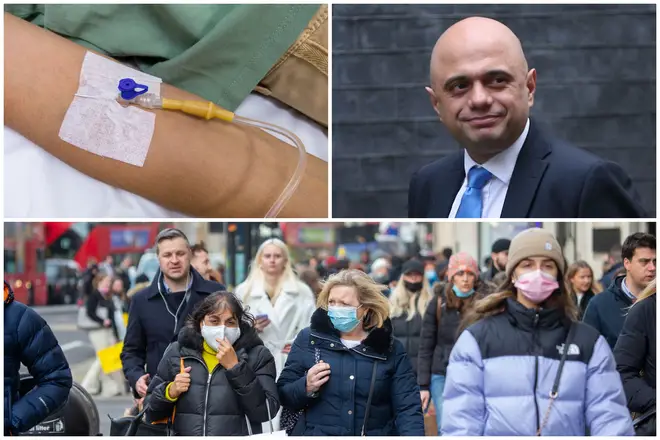
Clive Bull 1am - 4am
2 December 2021, 10:27 | Updated: 2 December 2021, 10:36

A Covid treatment which manufacturers claim will be effective against the Omicron variant has been approved for use in the UK.
Xevudy, a monoclonal antibody, can now be used for people with mild to moderate Covid who are at high risk of developing severe disease, and is said to cut the risk of hospitalisation and death by 79 per cent.
And makers GlaxoSmithKline and Vir Biotechnology said pre-clinical data show the drug "retains activity against key mutations of the new Omicron Sars-CoV-2 variant".
George Scangos, chief executive of Vir, said the drug “was deliberately designed with a mutating virus in mind”.
However, the Medicines and Healthcare products Regulatory Agency (MHRA), which approved the treatment for use, said in its announcement that it's “too early to know whether the Omicron variant has any impact on effectiveness, but the MHRA will work with the company to establish this”.

Caller reveals he sacked his anti-vax gardener
Health secretary Sajid Javid, responding to the regulator’s approval today, added “we'll closely monitor how effective Xevudy is against the Omicron variant and will work on deployment plans with the NHS”.
The government has ordered about 100,000 doses of the drug, which is administered by intravenous infusion.
It works by binding to the spike protein on the outside of the Covid virus. This in turn prevents the virus from attaching to and entering human cells, so it cannot replicate in the body.
Read more: Europe must consider mandatory vaccines, says EU chief Ursula Von der Leyen
Read more: Sajid Javid denies Boris Johnson broke Covid rules with No 10 Christmas party
The MHRA has said it should be given as soon as possible after infection, or within five days of symptoms starting.
It will be given to people with mild to moderate infection and at least one risk factor – such as obesity, being 60 or over, diabetes – for developing severe illness.
It comes as the government announced it has secured 114 million booster jabs in a major deal to "future proof" the fight against variants such as Omicron.